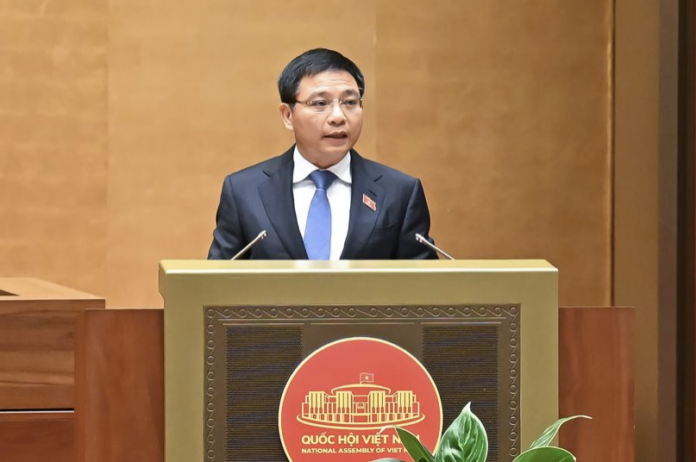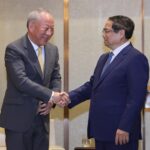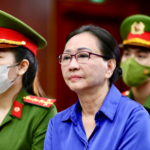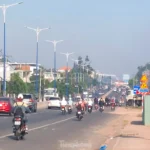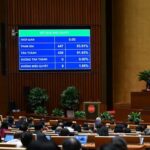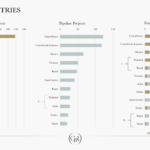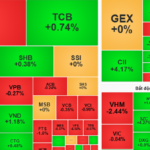On June 27th, with an overwhelming majority of 438 out of 447 delegates voting in favor (91.63% of the total number of National Assembly deputies), the National Assembly passed a resolution on establishing an International Financial Center in Vietnam. The resolution comprises 6 chapters and 35 articles and will come into effect on September 1st, 2025. The session was chaired by Ms. Nguyen Thi Thanh, a member of the Party Central Committee and Vice Chairwoman of the National Assembly.
Vietnam’s International Financial Center: One Center, Two Destinations
Presenting the report explaining, adopting, and editing the draft resolution on the International Financial Center in Vietnam, Minister of Finance Nguyen Van Thang stated that the resolution stipulates the establishment, operations, management, supervision, and specific mechanisms and policies applicable to the International Financial Center in Vietnam. These regulations will be applied to the center’s members, investors, agencies, organizations, and individuals associated with the activities of the financial center established under this resolution.
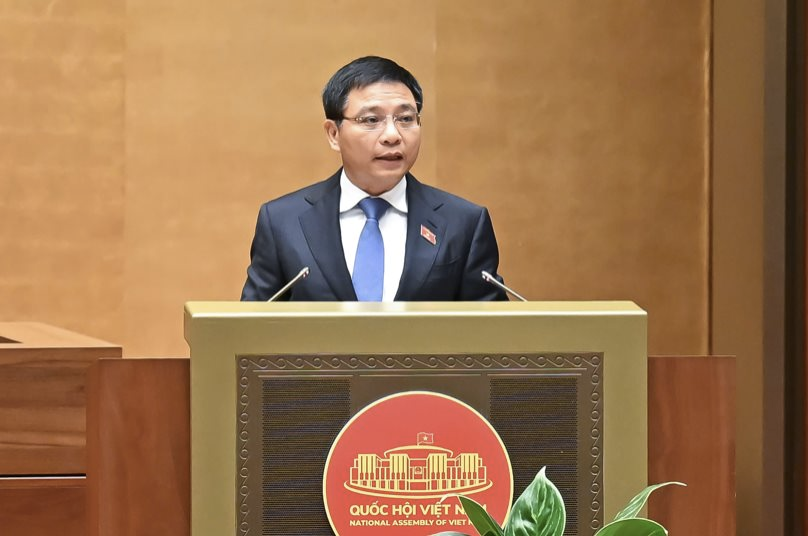
Minister of Finance Nguyen Van Thang. (Photo: National Assembly)
Accordingly, the International Financial Center will be located in Ho Chi Minh City and Da Nang, built on a unified foundation of operations, management, and supervision. Each city will have a distinct product development orientation, leveraging their respective strengths. This approach ensures fairness and mutual support, ultimately aiming to establish the center as a leading international financial hub, elevating Vietnam’s position in the global financial network, and driving economic growth.
Operating by International Standards
Minister Nguyen Van Thang also shared that the International Financial Center will operate according to advanced international standards, connecting with major global markets and financial centers. It will attract and develop high-quality human resources and financial experts, both domestically and internationally, while providing a conducive work and living environment for international specialists and entrepreneurs within the center.
The development of the financial center must balance the interests of the state, investors, and citizens in socio-economic advancement, maintaining financial safety, economic security, and political stability, as well as social order and safety.
Regarding the principles for the establishment and operation of the International Financial Center, entities that meet the conditions specified in this resolution and its detailed guiding documents will be eligible to apply the specific mechanisms and policies outlined in this resolution.
The specific mechanisms and policies outlined in this resolution will be applied within the administrative boundaries of the International Financial Center, as stipulated by the Government’s decree on establishing the center, as per Article 8 of this resolution.
The Minister of Finance also elaborated on the operating principles of the center’s members, which include efficiency, transparency, integrity, and professionalism in providing financial and supporting services. Additionally, members are expected to adhere to international standards in their operations.
State management within the International Financial Center must ensure the center’s independence and that of its members. The state recognizes and protects the ownership of assets, investments, income, and other legitimate rights and interests of the members. The state also offers specific and superior policies to attract capital, technology, modern management methods, and high-quality human resources, as well as encourage infrastructure development within the center.
The governing and supervising agencies will be organized in a streamlined manner, with appropriate authority and effectiveness. They will be authorized to employ special administrative procedures to meet the requirements of investors, organizations, and individuals, as stipulated in this resolution and its guiding documents, in alignment with international practices and Vietnam’s conditions.
“Specific and Superior” Policies
The specific policies applicable within the International Financial Center pertain to foreign exchange; banking activities; finance and capital market development; taxation; entry, residence, and labor regulations for experts, managers, and investors; labor, employment, and social welfare; land; construction and the environment; controlled financial experimentation for financial services applying technology (FinTech) and innovation; field-specific incentives; policies for strategic investors; infrastructure development; export, import, and distribution of goods and services; fees and charges; and dispute resolution in investment and business activities.
Regarding the application of laws within the International Financial Center, investment and business activities will be governed by this resolution and its detailed guiding documents.
When it comes to choosing the applicable law for investment and business transactions within the center, parties involved in a transaction, at least one of whom is a foreign individual or organization, may agree to choose a foreign law to govern that transaction.
Minister Nguyen Van Thang also noted that the official language for transactions and activities within the International Financial Center will be English, or English along with a Vietnamese translation.
Chinese Conglomerate Woos the Prime Minister with an Unprecedented Offer After a 20,000 Billion VND Project in Hanoi
The Chinese conglomerate is eager to expand its presence in Vietnam with a bold new vision. With a proven track record of success in the country, the company is now seeking to embark on even larger-scale projects, promising a transformative impact on the nation’s landscape.
Expanding Infrastructure: Binh Duong Invests Over VND 6,000 Billion to Widen National Highway 13, Connecting to Ho Chi Minh City
The Binh Duong province has invested nearly VND 1,400 billion to upgrade National Highway 13, a stretch of almost 13 kilometers from the border with Ho Chi Minh City to the edge of Thu Dau Mot city. In light of the merger with Ho Chi Minh City, and to cater to the ensuing travel demands and technical requirements, the province has decided to allocate an additional VND 6,000 billion to the project. This substantial investment aims to standardize the entire route, spanning over 60 kilometers, thus ensuring seamless connectivity and efficient transportation in the region.
The Legal Basis for Establishing an International Financial Center in Vietnam
On June 27th, an overwhelming majority of 438 out of 447 delegates voted in favor of a resolution to establish an international financial center in Vietnam. This decisive vote by the National Assembly marks a pivotal moment in the country’s economic journey.

























